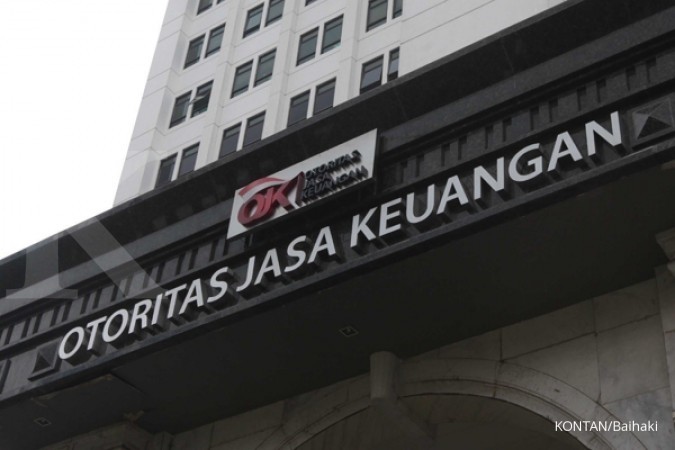Authorities downplay rising bad debts in banking sector
Change Size
 This picture shows the front of the Financial Services Authority (OJK) building. (KONTAN/*)
This picture shows the front of the Financial Services Authority (OJK) building. (KONTAN/*)
F
inancial authorities have downplayed the rising numbers of bad loans across many economic sectors, claiming that they are unlikely to affect the stability of the financial system.
Bad loans, or non-performing loans (NPL), are on the rise, as revealed by the latest banking statistics.
They amounted to Rp 113.08 trillion (US$8.26 billion) by the end of the first quarter, an annual increase of 27.9 percent, and left the NPL ratio at 2.8 percent.
The staggering rise was reported in the provision of accommodations, food and drink as the bad loans jumped by almost 100 percent.
Several other sectors suffered from the negative trend as well. While the processing sector’s NPLs surged 61.9 percent year-onyear (yoy), transportation’s NPLs climbed 26.7 percent yoy.
Many attribute the increase to late debt repayments as companies struggle to make ends meet while the domestic and global economies remain weak.
As reported before, the domestic economy grew slower than expected in the first quarter at 4.92 percent. It slowed from the previous 5.01 percent in the last quarter of 2015.
The slow economic growth, in addition to the persistently sluggish commodity prices, have led to slow performances of corporations and weakening purchasing power, both of which contributed to the increase of NPLs.
Despite that fact, BI Governor Agus Martowardojo said that the higher NPL had not affected the country’s overall economy and was unlikely to do so in the future.
He pointed to the banking industry’s capital adequacy ratio (CAR) — an important indicator of capital strength – and said it was still at 21.8 percent in March, higher than the current minimum CAR requirement of 8 percent.
Agus argued that the ratio indicated that the banking sector was still strong enough to face credit, market, or liquidity risks.
“In general, the country is financially stable, even though we can see that the NPL has risen slightly, whether at banks or at non-banking financial institutions,” he said on Monday.
However, the central bank will still keep a close watch on the NPL. BI deputy governor Erwin Rijanto said that credit quality of 31 large banks could worsen further if not monitored thoroughly.
For example, Bank Mandiri, the nation’s largest lender in terms of assets, reported a gross NPL rate of 2.89 percent in March this year, rising quite significantly from 1.81 percent a year ago.
It was then forced to set aside a higher loan loss provision, an expense reserved for defaulted loans, which ate away at its profitability. In the end, its net profits dropped 26 percent on an annual basis to Rp 3.8 trillion in the January to March period.
Meanwhile, the Financial Services Authority (OJK) is not worried about the rising bad loans either. The OJK does not consider the current level as alarming because the latest ratio is still below the 5 percent threshold.
OJK deputy commissioner of banking supervision Boedi Armanto said that regular monitoring by the Financial System Stability Committee (KSSK) — consisting of the OJK, BI, the Finance Ministry and the Deposit Insurance Corporation (LPS) — would help authorities contain any possible risks stemming from the NPL.
“It is mandatory for us to meet every three months. We discuss all issues to prevent disruptions to our economy,” he said.
The OJK has high hopes that credit demands and disbursements will increase in the second quarter, which will help offset the NPL rise.










